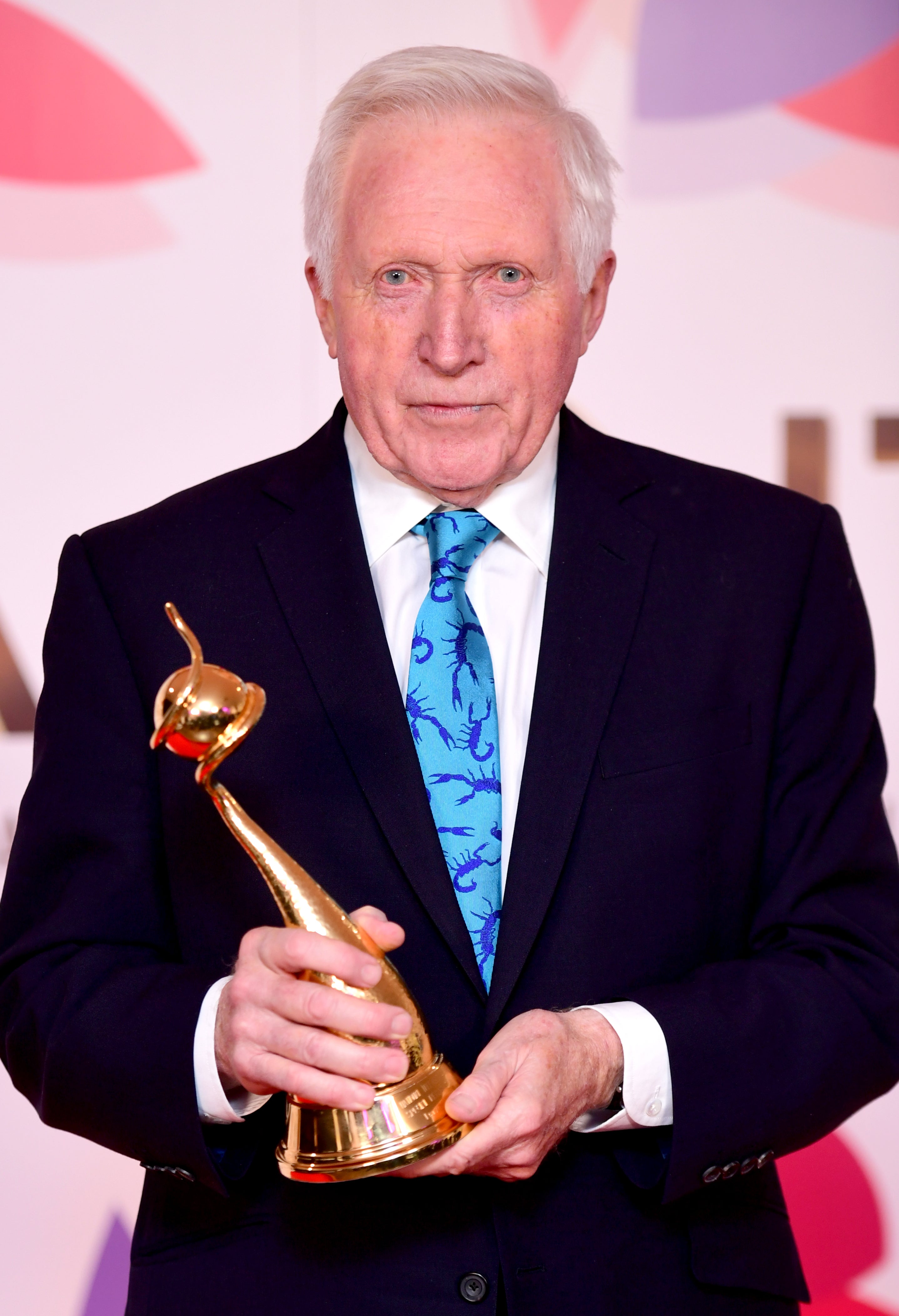David Dimbleby suggests council tax link for BBC licence fee alternative
The Government has announced that the licence fee is to be frozen at £159 a year until 2024.

David Dimbleby has suggested the BBC licence fee should be linked to council tax to make it fairer, as the Government questions future funding of the broadcaster.
Culture Secretary Nadine Dorries confirmed at the beginning of the week that the licence fee is to be frozen at £159 a year until 2024, after which it will rise in line with inflation for the following four years.
A number of alternatives to funding for the licence fee have been floated, including an opt-in subscription service similar to that used by streaming giants such as Netflix, the introduction of advertising, or a broadband levy.
Former Question Time host Mr Dimbleby told BBC Radio 4’s World At One programme: “The licence fee is something that I absolutely believe in; I don’t think you can have public service broadcasting without paying for it through the public purse in that way.
“But what I do think is the BBC should acknowledge that £159 paid by the poorest as well the richest is just unfair, it’s inequitable.
“And there’s a simple way in which the BBC can get on the front foot, which is by suggesting the licence fee figure, the gross figure of £159, should not be paid flat rate by everybody but the richest should pay more and the poorest less.
“And the simple way of doing it would be to attach an element of the licence fee to the council tax band.”
He added: “Why should the poorest pay the same as I pay? It’s just not fair.”
Mr Dimbleby also said the BBC must do more to keep in “lockstep” with public opinion, saying it has strayed “a bit”, such as on issues as immigration.
“Over the years the BBC has not been strong on looking at the reasons that people in some parts of Britain were uneasy about the scale of immigration,” he said.
In a letter which appeared in Friday’s edition of The Times, Mr Dimbleby wrote: “Those in Band A would pay the most for possession of a TV set and those in Band D the least.
“In this way the BBC’s revenue would be maintained but the burden would fall more fairly on the public, and at least one of the objections to the licensing system would be removed.”
Following the Government’s announcement about the licence fee, the corporation’s director-general commented on the funding alternatives.
Tim Davie told BBC Radio 4’s Today programme earlier in the week: “Once you’re trying to serve a subscription base and a commercial agenda – and, believe me, I’ve run commercial businesses – it is a completely different situation, because suddenly you are doing things that are there to make profit and make a return to a specific audience.”
Asked if he agrees with the debate that the licence fee is “over”, he said: “I think the debate is more centred around ‘Do we want a universal public service media organisation at the heart of our creative economy, which has served us incredibly well?’ And if we want that, we have to support a publicly-backed and not a fully commercialised BBC.”
A number of well-known names including TV presenter Richard Bacon, comedian David Baddiel and BBC Breakfast host Dan Walker spoke out to defend the BBC licence fee following the news.
In a statement from the BBC earlier this week, Davie added: “We actively look forward to the national debate on the next Charter and, of course, all options should be considered.”
Bookmark popover
Removed from bookmarks